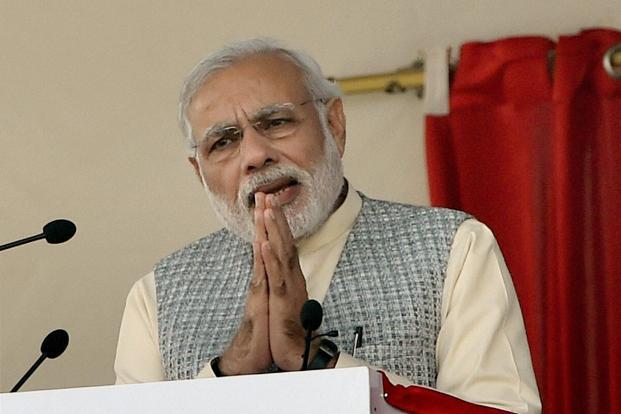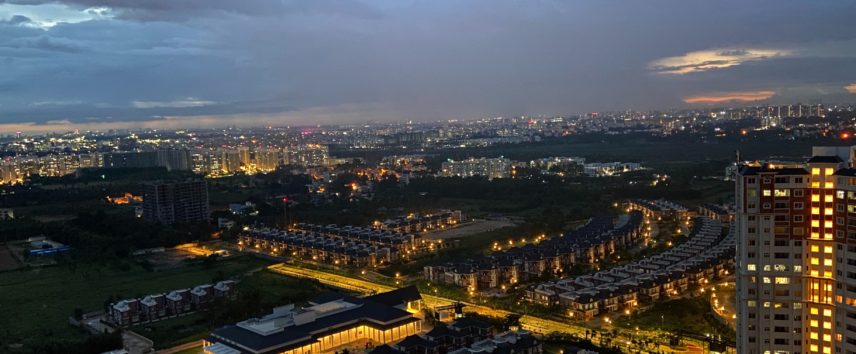Trending Now
- “I will soon make an announcement regarding a statewide tour across Tamil Nadu.” – O. Panneerselvam.
- Vatsala, Asia’s oldest elephant, has passed away at Panna Tiger Reserve; social activists mourn the death of this elephant, which lived for over 100 years.
- “The U.S. Govt earned ₹8 lakh crore this year through increased tariffs on foreign goods.” – U.S President Donald Trump.
- World No.1 Aryna Sabalenka has advanced to the semifinals in the Women’s Singles category at Wimbledon Tennis.
Columns
What do you do with a neighbour like Pakistan?
![]() January 4, 2016
January 4, 2016
New Delhi: When Prime Minister Narendra Modi arrived at Lahore on 25 December to a warm hug by his Pakistani counterpart Nawaz Sharif, it signalled a resolve by both prime ministers to stay invested in the latest peace initiative between the two countries. It also signalled a challenge to those opposed to lessening of tensions and greater engagement between the two usually hostile neighbours.
The 2 January attack on the Pathankot airbase in Punjab seemed to serve as a reminder of the fact that there were many sections in Pakistan ready to pick up the challenge thrown by Modi and Sharif.
Analysts in India were sure that India would take the peace course as statements from Modi, the Indian foreign ministry and a senior cabinet minister indicated that India would press ahead with engagement. But others advised caution.
With the visit to Lahore, “the prime minister has committed himself to talks,” said former foreign secretary Kanwal Sibal.
According to Ajai Sahni, executive director of the Institute for Conflict Management, a think tank in New Delhi, the attack was in line with a familiar pattern of militant attacks trying to queer the pitch for dialogue. “It may lead to a momentary pause in the …dialogue and attacks from the (Indian parliamentary) opposition for not pursuing a harder line, but I don’t think it will have a long-term impact,” he said.
The militants, suspected to be part of the Jaish-e-Mohammed Islamist group based in Bahawalpur in Pakistan, entered the heavily fortified Pathankot air base in Punjab before dawn on Saturday by scaling the wall surrounding the facility and once inside, they opened fire indiscriminately.
“Just because the number of casualties is small (11 including the attackers) does not mean this attack was not serious,” said former foreign secretary Lalit Mansingh pointing to the choice of target. It is one of the major air bases in north India serving Kashmir, the region over which India and Pakistan have fought three of their four wars since Independence in 1947. India accuses Pakistan of supporting a violent Islamist insurgency in Kashmir and terrorist attacks in other parts of the country, a charge Islamabad denies.
“One way of looking at the attack is to say that the Pakistan military is testing Modi” and his resolve for peace with Pakistan, said Mansingh. Indian officials and analysts say the Pakistani military, seen as opposed to peace with India, draws up Pakistan’s policy towards India besides the US and Afghanistan. India suspects Pakistan’s Inter-Services Intelligence military spy agency of supporting anti-India militant groups.
The Pathankot attack comes a fortnight before the foreign secretaries of India and Pakistan are to meet in Islamabad on 15 January to discuss the modalities of how to take forward the “new comprehensive bilateral dialogue” announced last month. It marked the resumption of official level dialogue between India and Pakistan after a hiatus of more than two years.
According to Mansingh, “India now has three options available. One is to continue with the anticipated talks, the second is to assess the situation and then take a decision on holding the (15 January) talks—in other words put the talks on hold. The third option is to call off the talks as India sees the terror attack as an act of bad faith and resume dialogue only after receiving satisfaction from Pakistan” on the terrorism front.
“I suspect the government will go in for the second option which is to assess the situation and proceed,” he said. The thinking within the Indian government, however, seemed to be in favour of giving peace a chance.
Modi, in his remarks, was careful not to name any group, organization or country. He slammed the attackers as “enemies of humanity who cannot see the nation (India) succeed,” according to a statement from his office that analysts said left the door open for continuing engagement with Pakistan.
India’s foreign ministry spokesman Vikas Swarup in a post on his Twitter account merely said: “Operations continuing, immediate focus on resolving situation – premature to say anything more at this point.”
Environment minister Prakash Javadekar was the most definitive on the way ahead. “This process (talks) cannot be destroyed due to one attack… Pakistan is our neighbour. You cannot change your neighbour, you can change friends and therefore we must continue with the talks but talks have to be mainly on the issue of terrorism and that’s what exactly India is doing,” Javadekar was cited as saying on the NDTV news channel website.
The one person who came to close to pointing at finger at Pakistan was Union home minister Rajnath Singh. “Pakistan is our neighbouring country. We want good relations with not just Pakistan but with all our neighbours. We also want peace, but if there is any terror attack on India, we will give a befitting reply. We will hit hard,” he said.
The assault by five militants came after a flurry of diplomatic activity between India and Pakistan in recent weeks. Setting off the chain of events was a quick meeting between Modi and Sharif in Paris on 30 November on the sidelines of the United Nations Framework Convention on Climate Change (UNFCCC). This was followed by a meeting of the national security advisors of India and Pakistan in Bangkok on 6 December and a visit to Pakistan by Indian foreign minister Sushma Swaraj on 8-9 December. During Swaraj’s visit India and Pakistan agreed to start a “new comprehensive bilateral dialogue” that would cover all issues or subjects that were part of earlier dialogues, in addition to humanitarian issues and religious tourism. On 25 December, Modi made a surprise stop in Lahore on his way back home from Russia and Afghanistan—the first visit to Pakistan by an Indian prime minister in more than a decade. The last visit to Pakistan by an Indian prime minister was in January 2004 when Atal Bihari Vajpayee visited Islamabad for a summit meeting of South Asian leaders.
According to Sibal, “it is now not possible for India to step back” given the boost by Modi himself with the stop in Lahore. “If the government does not stay the course, then the prime minister’s stop in Lahore will seem impulsive which will invite opposition criticism,” he said.
Elizabeth Roche
Disclaimer:The views expressed above are the author’s own






















